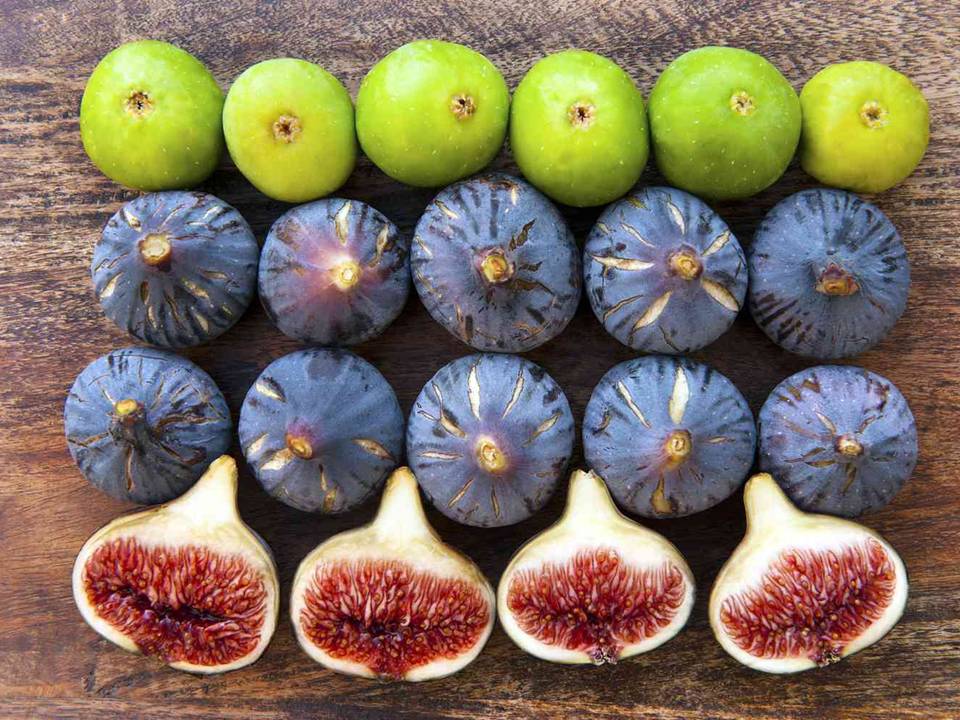Fresh Figs and their Benefits for a Healthy Life
Fresh figs are a versatile and nutritious fruit. They offer many health benefits and can enhance our diet in various ways. Including figs regularly helps improve overall health and well-being.
Rich Source of Nutrients
Fresh figs are packed with essential nutrients. They contain dietary fibre, vitamins, and minerals. These nutrients support the body’s vital functions. Figs provide vitamin A, B vitamins, vitamin K, potassium, magnesium, and calcium. Consuming figs helps meet daily nutritional needs.
Boosts Digestive Health
Figs are high in dietary fibre. Fibre helps keep the digestive system healthy. It prevents constipation and promotes regular bowel movements. Eating figs can soothe the stomach and improve digestion.


Supports Heart Health
Fresh figs benefit the heart. They contain potassium, which helps control blood pressure. The fibre in figs lowers bad cholesterol levels. This reduces the risk of heart disease. Including figs in your diet supports cardiovascular health.
Provides Antioxidants
Figs contain antioxidants such as polyphenols. These compounds fight free radicals in the body. Antioxidants reduce oxidative stress and prevent cell damage. They help keep the body healthy and slow aging.
Strengthens Bones
Figs contribute to strong bones. They are rich in calcium, magnesium, and phosphorus. These minerals play a vital role in bone development and maintenance. Eating figs supports bone density and reduces the risk of osteoporosis.
Helps Manage Weight
Figs can aid in weight management. The fiber content makes you feel full for longer. This reduces overeating and snacking between meals. Figs are a healthy, low-calorie snack option.
Enhances Overall Well-being
Regularly including figs in your diet boosts energy levels. They improve immune function and reduce inflammation. Figs also add natural sweetness to meals, reducing the need for processed sugars.
Nutritional Value of Fresh figs
Figs contain: Dietary fibres (2.9g/100g) which help regulate glucose and cholesterol.
Natural sugars: Provide energy with a low glycaemic load.
Antioxidants: Rich in polyphenols such as quercetin and rutin, which act against oxidative stress.
Potassium & Magnesium: Support cardiovascular health and blood pressure.
Calcium (~35mg/100g): Contributes to bone health.
A study from the University of Scranton (Pennsylvania) [Vinson JA et al., J Food Sci, 2005] showed that dried figs have a high content of polyphenols and offer antioxidant protection. Other laboratory studies (e.g. El-Shobaki FA, 2010) have shown that fig extracts may exhibit anticancer activity, primarily through the action of flavonoids — however, further study in humans is required for documentation. Ideally as a natural snack or part of a Mediterranean diet. Dried figs have more than three times the amount of sugars (50g/100g).
How to Consume Figs
Consuming figs is simple and versatile, as they can be enjoyed fresh, dried, or cooked in various dishes. Here’s how to consume figs in different ways:
1. Eating Fresh Figs
Wash them: Ripe figs are delicate, so rinse them gently under cool water.
Remove the stem: Twist or cut off the stem before eating.
Eat whole or sliced: The skin is edible, but you can peel it if preferred.
Pairings: Enjoy with cheese (like goat cheese or blue cheese), honey, nuts, or prosciutto.
2. Eating Dried Figs
Eat as a snack: Dried figs are chewy and sweet—great for energy boosts.
Rehydrate: Soak in warm water or tea to soften before eating.
Chop and add: Mix into oatmeal, yogurt, or baked goods.
3. Cooking with Figs
Baking: Use in cakes, tarts, or bread.
Jams & Chutneys: Cook down with sugar and spices for spreads.
Salads: Add sliced figs to salads with arugula, walnuts, and balsamic glaze.
Grilled/Roasted: Grill or roast figs to enhance sweetness—great with meats or desserts.
Smoothies: Blend fresh or dried figs into smoothes for natural sweetness.
4. Beverages
Fig-infused water: Soak figs in water for a subtly sweet drink.
Tea: Use dried figs in herbal teas or decoctions.
5. Storing Figs
Fresh figs: Keep in the fridge for 2–3 days (they spoil quickly).
Dried figs: Store in an airtight container in a cool, dark place for months.
Conclusion
Fresh figs are a valuable addition to a balanced diet. They provide essential nutrients and health benefits. Incorporate fresh or dried figs into your meals to enjoy their full potential. Staying healthy becomes easier with the inclusion of this nutritious fruit.




